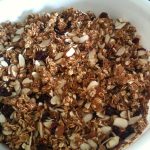Adoption Trauma & Sugar Addiction: A Connection (Part 2) — Joan Kent, PhD
Part 1 touched on trauma & addiction by looking at early trauma as primary, as the cause, and the addiction, whatever it may be, as secondary to the trauma.
It’s been said that early trauma — and adoption is only one example — can interfere with the normal stress response. That interference may make it likely that an adopted child will grow up to experience PTSD or have similar symptoms: continuous stress arousal, anxiety, depression, hypervigilance, other.
The grown child may also feel a need for some form of self-medication, say alcohol or drugs, to numb trauma-related feelings. Because it works, albeit temporarily, that self-medication may lead to adult-stage addictions. This is generally acknowledged by researchers and other experts.
Yet younger children who don’t have access to those addictive substances might discover, even without trying, the so-called numbing effect of sugary foods. Sugar can, and does, affect brain chemicals and thus behaviors, mental states, emotional responses, and more.
The kids may end up addicted to sugar. And the effects of sugar can be stronger in some kids than in others.
Some sources claim all adoptees go through adoption trauma. Maybe they do. What appears to be true, though, is not every adopted child undergoes pronounced adoption trauma. Why does it happen more with some kids than with others?
Adoption Trauma Turned Upside Down
What if we were to turn this discussion on its head? Let’s start by looking at sugar addiction neurochemically and hormonally and see where that goes.
My doctoral research showed that susceptibility to sugar addiction starts with a phenomenon that’s typically genetic: low baseline levels of several feel-good neurochemicals, specifically dopamine, beta-endorphin, and serotonin. This can happen where there’s a family history of alcoholism or other addiction, depression or other mood disorder, hypertension, diabetes, or obesity.
When the susceptible child eats sugary foods, those same brain chemicals then show an exaggerated increase.
So What Happens There?
• The child feels less than optimal on a day-to-day basis without sugar. In that pre-sugar state with low levels of brain feel-goods, he/she may be prone to depression, trauma, anxiety, loneliness, suicidal thoughts, or other states.
• Then, after some sugar, the child feels exceedingly good. The good post-sugar state may help to mask the child’s negative emotions by establishing a temporary balance or state of normalcy.
This combination is highly reinforcing and calls out for, even demands, repeat behavior. The phenomenon can occur in sugar-sensitive individuals of all ages, but let’s limit this post to kids.
As previously stated, the research I’ve read assumes the opposite: that trauma is the cause and sugar addiction the effect. But I’m suggesting that this susceptibility, this sugar sensitivity, may be primary in the link between early trauma and addiction, rather than secondary to the trauma. As such, the sugar sensitivity may LEAD not only to sugar addiction, but also to negative moods, volatile behaviors, even adoption trauma.
This makes sense to me because, again, not every adopted child appears to experience pronounced adoption trauma. I’m suggesting that some kids feel it more because of this genetic neurochemical profile. As a result, it’s not surprising to find a strong connection in those kids between sugar addiction and adoption trauma.
The recognized link between early trauma and resulting addiction is backed by much research.
Yet flipping this, as we just have, is a way of looking at it that may expand our understanding of what drives the behaviors of some adopted children and may explain their early attempts to self-medicate with sugar, perhaps obsessively, and the higher degree of trauma they experience post-adoption.
If you’d like information on working with ordinary foods to balance early trauma and substance abuse behaviors, perfect! That’s what I do. Just contact me at drjoan@LastResortNutrition.com or visit LastResortNutrition.com and request your Trauma/Addiction Solution consult.
Brought to you by Dr. Joan Kent, best-selling author of Stronger Than Sugar.



